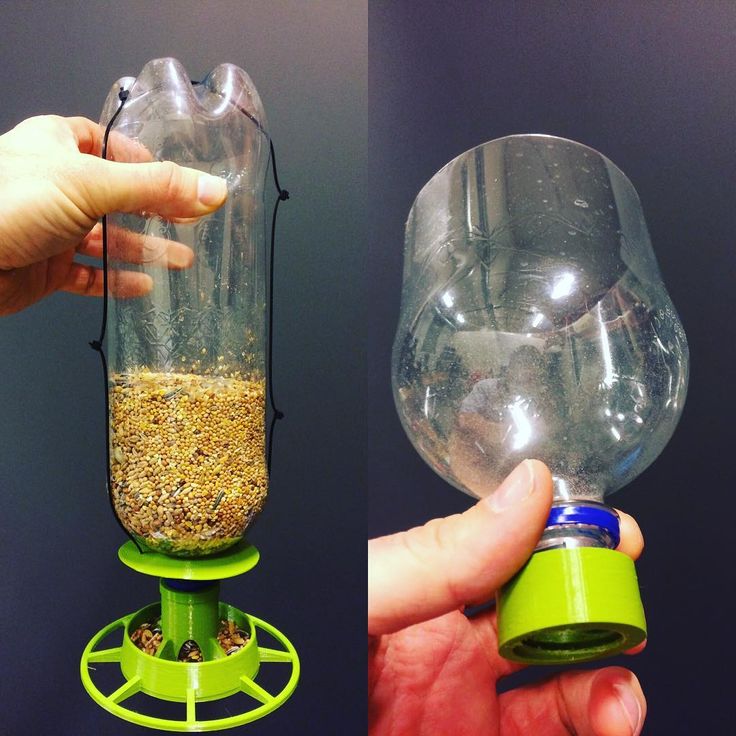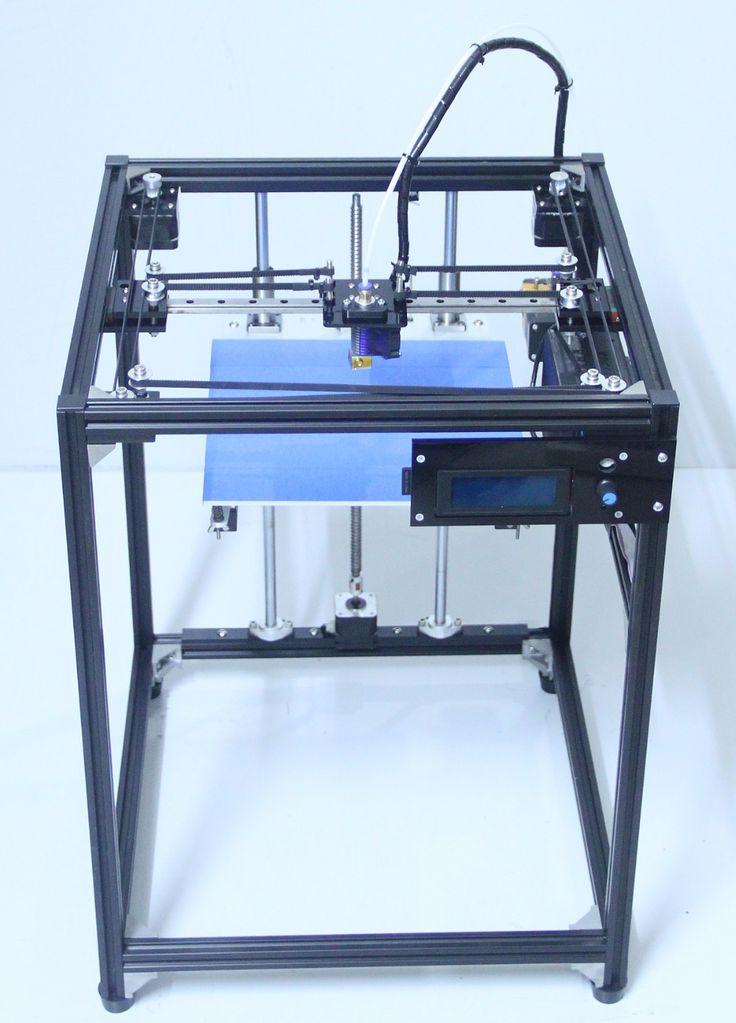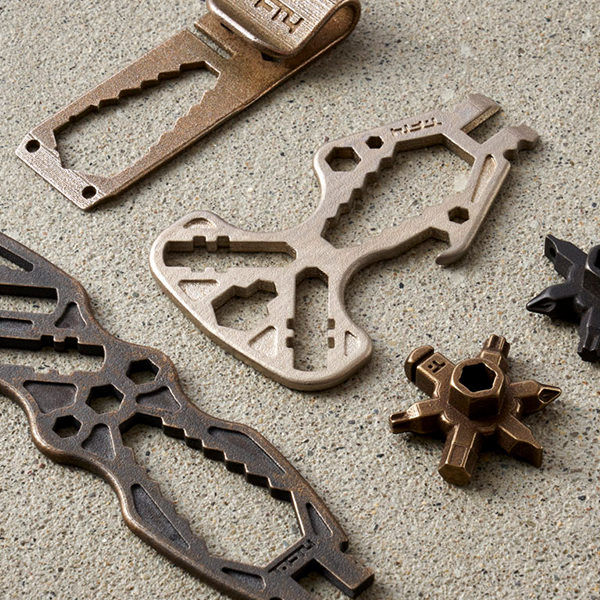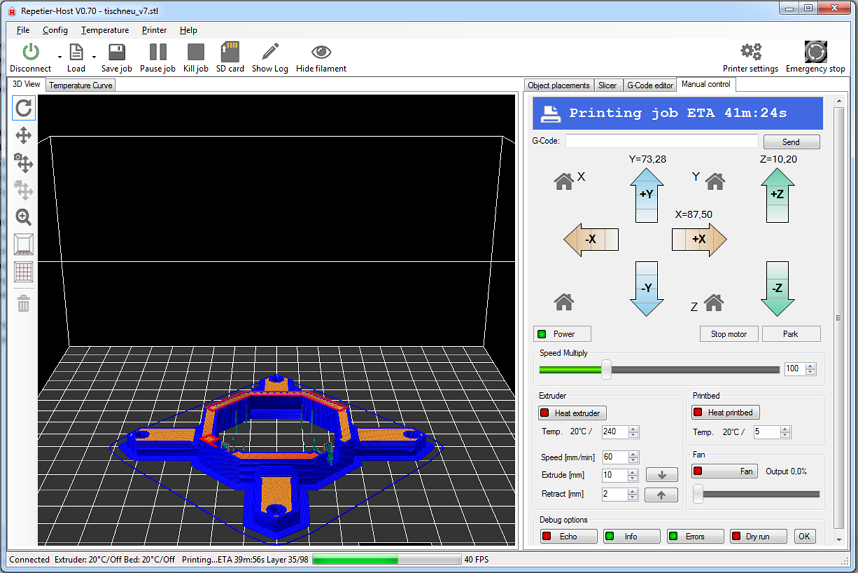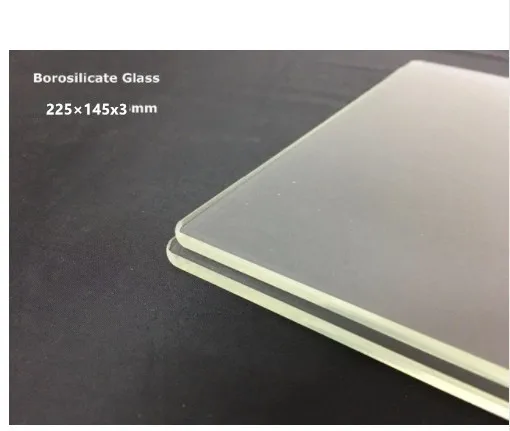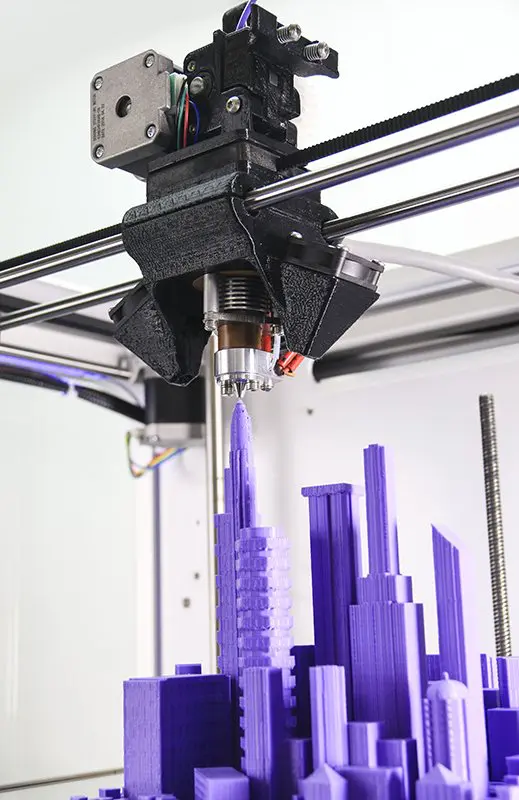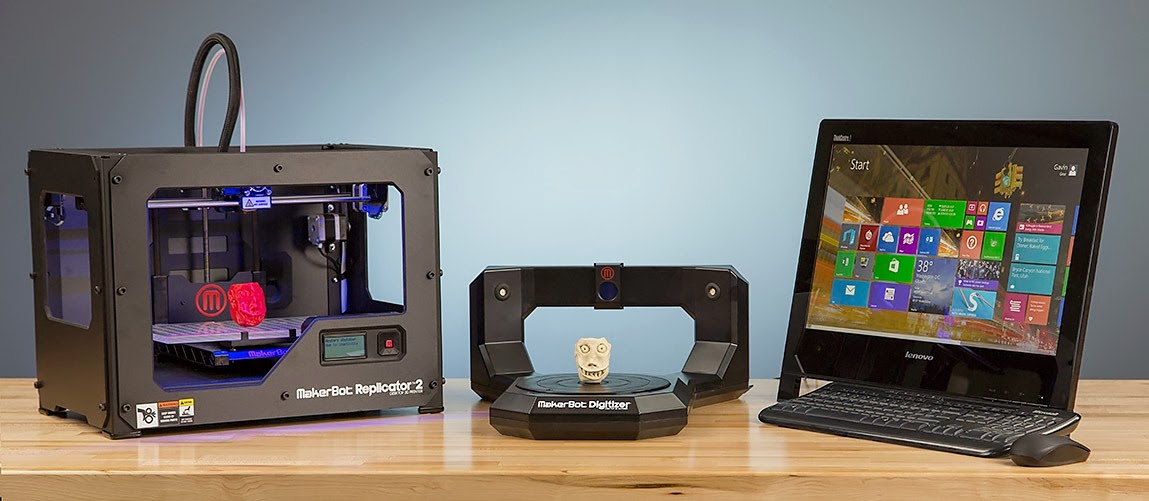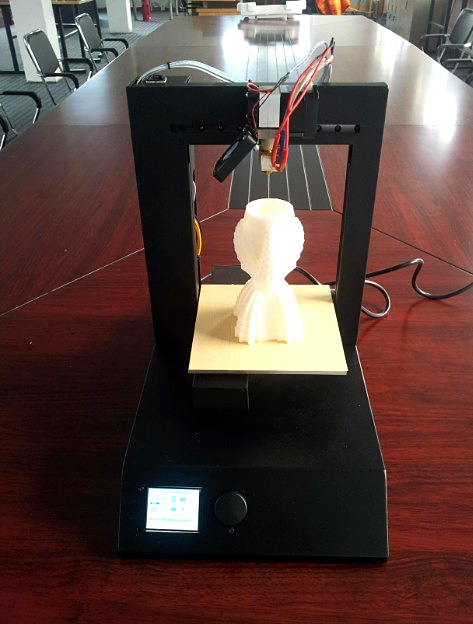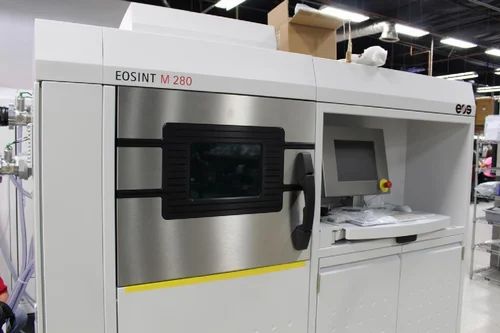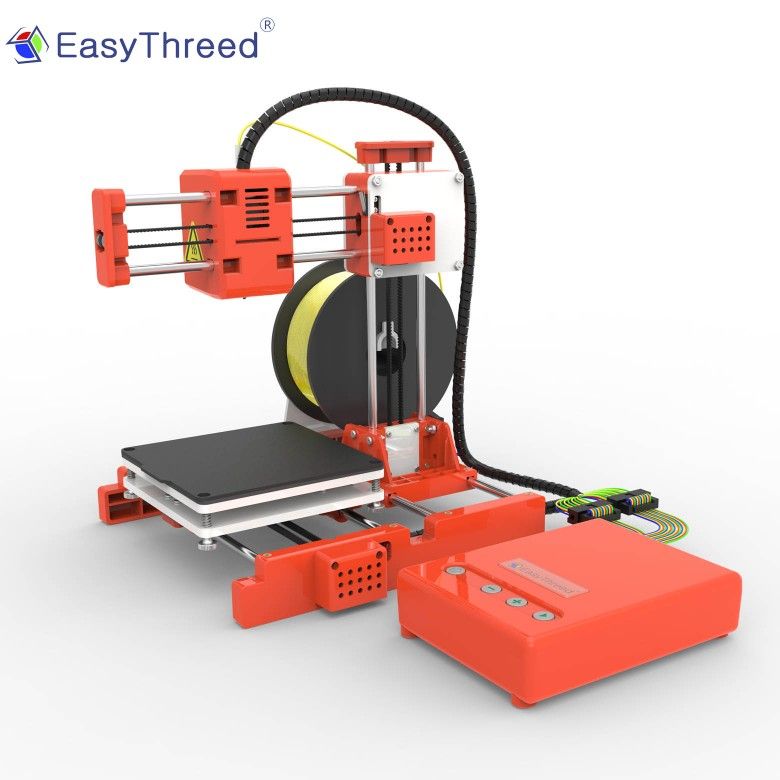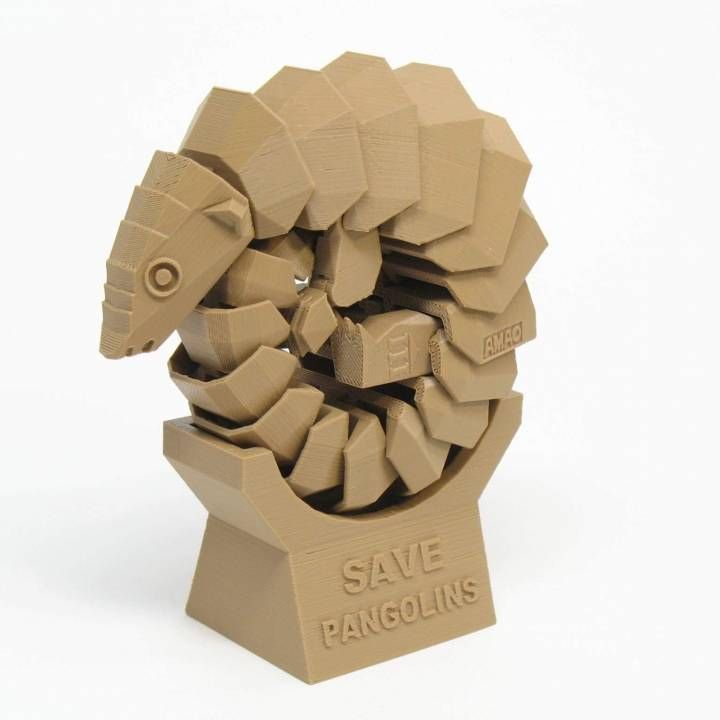3D print slicer software
Powerful, easy-to-use 3D printing software
Trusted by millions of users, Ultimaker Cura is the world’s most popular 3D printing software. Prepare prints with a few clicks, integrate with CAD software for an easier workflow, or dive into custom settings for in-depth control.
Slicing features
At the heart of Ultimaker Cura is its powerful, open-source slicing engine, built through years of expert in-house development and user contributions.
Intent profiles print specific applications at the click of a button
Recommended profiles tested for thousands of hours ensure reliable results
‘Custom mode’ gives over 400 settings for granular control
Regular updates constantly improve features and printing experience
Integrated workflow
If you own a 3D printer, software matters. Get the most from your printer with software designed to suit your workflow.
Seamless integration with all Ultimaker products
CAD plugin integration with SolidWorks, Siemens NX, Autodesk Inventor, and more
Compatible file types: STL, OBJ, X3D, 3MF, BMP, GIF, JPG, PNG
Easy to use
Manufacturing doesn’t need to be complicated. We design our software so anyone can use it – both experienced or rookie 3D printer users.
Prepare your 3D model for print in minutes with recommended settings
Simply choose speed and quality settings, and you can start printing
Ultimaker Cura is free and open source software
Ultimaker Marketplace
Being open and collaborating is in our DNA. Now we bring this to the professional 3D printing market with the Ultimaker Marketplace.
Download material profiles from leading brands for your application
Avoid manual setup when using third-party materials
Download useful plugins to customize the print preparation experience, star-rated by our community
An Ultimaker Cura experience that keeps your infrastructure rock-solid
Ultimaker Cura Enterprise delivers stability and security with features that are tailor-made for businesses.
Utimaker Cura Enterprise can be deployed, configured, and managed with cross-platform systems distribution
Ultimaker Cura Enterprise receives two updates a year.
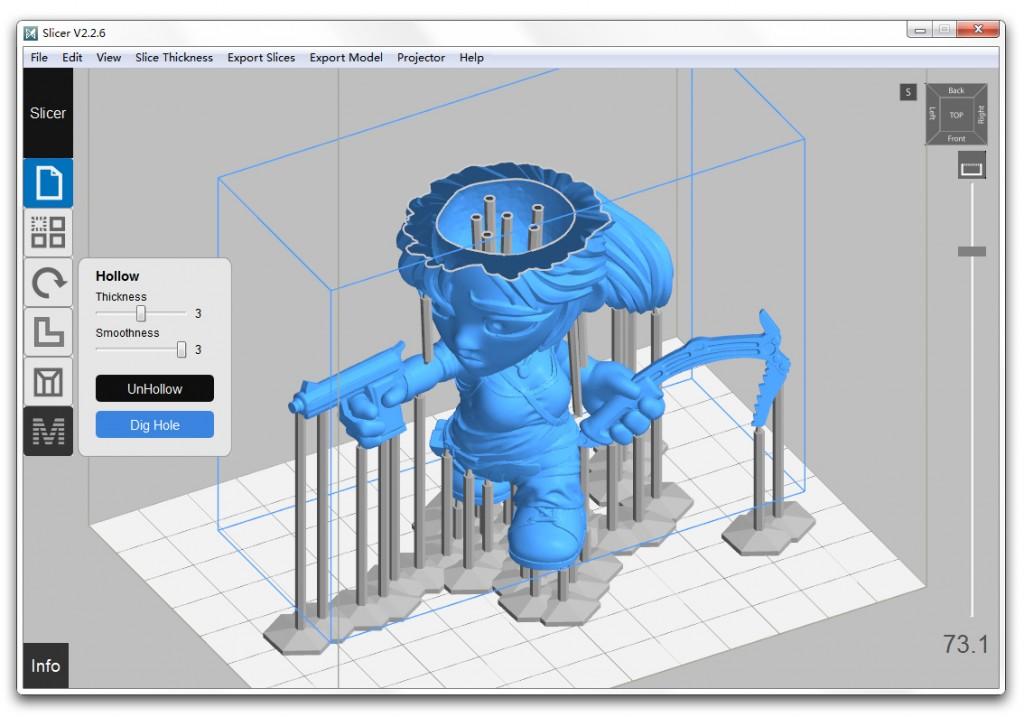 These are thoroughly tested by our community and ensure the most stable desktop application. We support updates for 12 months after release (including security patches and bug fixes)
These are thoroughly tested by our community and ensure the most stable desktop application. We support updates for 12 months after release (including security patches and bug fixes)Each release of Ultimaker Cura Enterprise is independently scanned, tested, and analyzed for vulnerabilities. We publish a summary of that report and we commit to continuously improving security
Backup & sync your materials & plugins
Save projects to the Digital Library
Access 3D printing e-learning courses
Join a community of 40,000+ active users
3D printers that simply work
Our award-winning 3D printers are robust, reliable, and easy to use. They deliver quality parts time and again. Designed and tested to run 24/7, they allow you to achieve the results you need more quickly and easily.
Learn about our 3D printers
Software ready for Industry 4.0
Trusted by millions of users across 14 languages, Ultimaker Cura slices your model and integrates with any workflow through Marketplace plugins.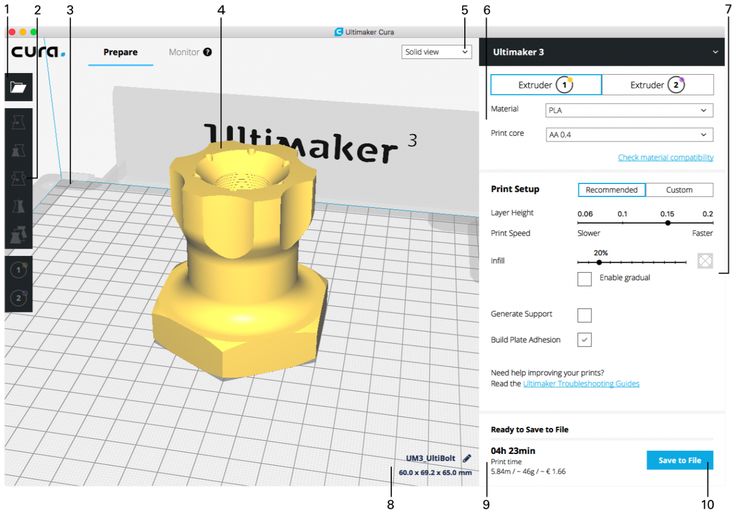 Then scale production and digital distribution with Ultimaker Digital Factory.
Then scale production and digital distribution with Ultimaker Digital Factory.
Material choice like never before
Ultimaker offers the widest material choice on the market. Through our Material Alliance, choose the perfect filament for your application – from advanced polymers to carbon fiber composites.
Learn about our materials
Support dedicated to your success
Wherever you are in the world, Ultimaker support is close by. Our global network of service partners offer professional installation, training, and maintenance in your language and time zone.
Learn about our support
What Is the Best 3D Printer Slicer in 2022?
The process of 3D printing comprises three essential components: the 3D printer, the 3D model, and the slicing software for 3D printing. If you're new to 3D printing, a 3D printer slicer, or slicer, is software that acts as the middleman between the 3D printer and the 3D model.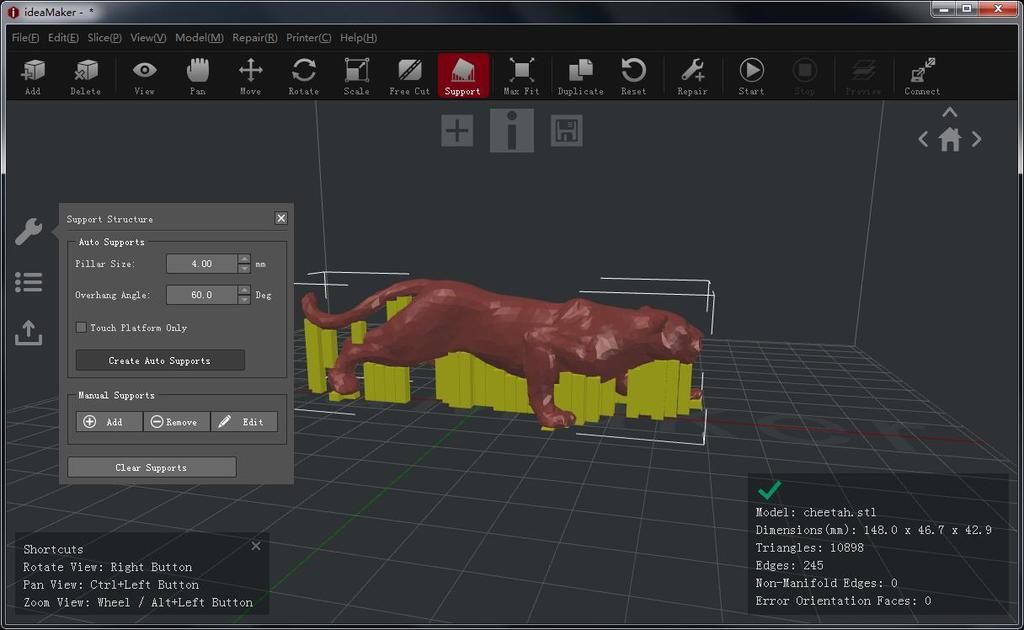
3D printer slicers convert 3D models (like STL) into a format (like G-code) that 3D printers understand and can trace to create a print. The G-code file contains a set of instructions that tell the 3D printer what to do and how to do it.
This article covers some of the best 3D printer slicer software. But first, let's look at the characteristics of a good slicer.
What Are the Qualities of Good 3D Printer Slicer Software?
To be considered great, there are some features an industry-standard slicer should have. Here are the main variables to consider when searching for the best 3D slicer.
1. Ease of Use
There's no point in having great and advanced features if no one can find and use them. An ideal slicer should have a user-friendly interface and straightforward guides.
2. Preview
A good slicer should provide estimates on the printing time, how much material is needed, and how much is left. The estimations should be as accurate as possible.
3. STL Import Speed
You don't want to waste time waiting for your 3D printer files to display. Any good 3D slicer should quickly import STL files (or any other 3D printer model), no matter the size or complexity of the files.
4. STL Repairing
If your file has errors that could affect the print, a good 3D slicer software will alert you and fix them if necessary. This helps prevent wasteful reprints.
5. Slicer Supports
A good slicer should automatically generate supports. This will ensure that your final print is more precise and accurate, especially over wide-angle printing.
6. Cost
There are many great free programs, so if the 3D printer slicer is paid, it should offer significant advantages over the free options.
The Best 3D Printing Slicer Software
There are many slicing software, some with unique features and others compatible only with specific platforms. To help you choose the right software, here's a list of the top 3D printer slicer software, both free and paid.
1. Cura
Cura is a free and popular open-source slicer and is our top choice for the best 3D printer slicer. The software was developed by Ultimaker and was meant for use with their 3D printers.
The 3D slicer suits all users, from beginners to expert users in various industries. It's easy to use, has a fast graphical user interface, and gets frequent updates for a better user experience. It also has a huge resource library and a large active user community.
Cura supports various 3D printers and is compatible with computers running on macOS, Windows, and Linux. It also integrates with several plugins to enhance your workflow and CAD software like Autodesk Inventor and SolidWorks.
The software works with file formats like STL, OBJ, X3D, and 3MF, showing a tool path, estimated printing time, and material usage. It also works with many image formats, including JPG, PNG, GIF, and BMP.
Download: Cura for Windows, Mac, and Linux (Free)
2.
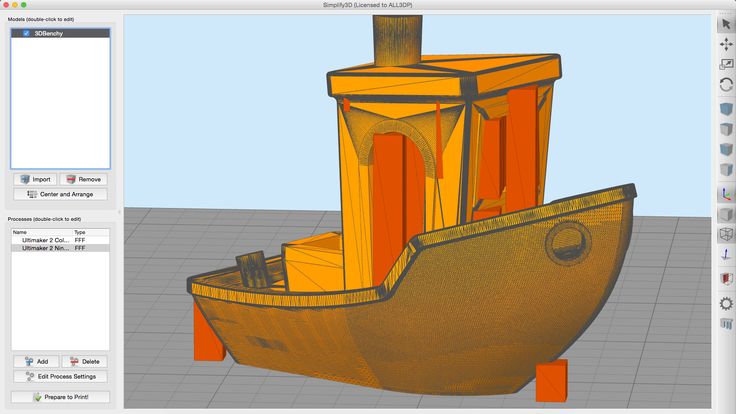 ideaMaker
ideaMaker ideaMaker is another free 3D printing slicer, often preferred for its versatility and user-friendliness. The software was developed by Raise 3D, primarily for their lineup of 3D printers, but it's also compatible with most FDM 3D printers.
The slicer has a simple interface and a smooth editing process and is a great choice for beginners and intermediate users looking for a straightforward slicer. ideaMaker is relatively fast and requires a few clicks to prepare your STL, 3MF, or OBJ files for print.
ideaMaker allows you to remotely monitor and control the printer and track multiple printing profiles. The software also includes features like auto-layout for multiple files, automatic support generation, and repair for faulty models.
Download: ideaMaker for Windows, Mac, and Linux (Free)
3. Simplify3D
Simplify3D is powerful 3D slicer software with easy-to-use advanced features. The software is suitable for experienced users who need a 3D slicer for high-quality printing.
The slicer works with almost all 3D printers and is compatible with Windows, macOS, and Linux. With Simplify3D, you can import, edit, and repair 3D models. You can also import OBJ, 3MF, or STL files very fast.
Simplify3D enables you to easily switch between multiple machines and monitor several printing processes at once. You also can access great pre-print simulations that allow you to pinpoint errors for fixing.
There are many printer settings to give you maximum control of the printing process. You can customize settings for extruders, infill 3D settings, temperature and cooling, and layer control. You can edit raw G-codes as well.
Simplify3D has many tutorials and a great support community. The software costs a one-time payment fee of $149. You'll, however, need to pay some fee for upgrades.
Download: Simplify3D for Windows, Mac, and Linux (Subscription required; free trial available)
4. Slic3r
Slic3r is an open-source 3D printer slicer best known for its unique and cutting-edge features updated now and then.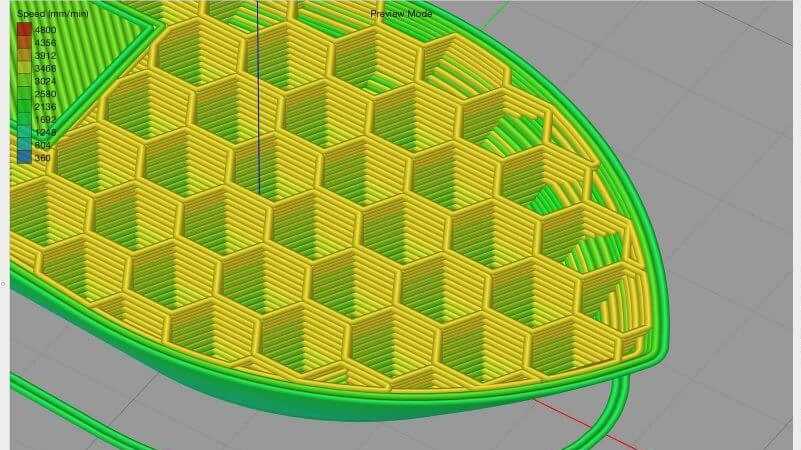 The software has many advanced features, making it suitable for experts looking for a free 3D slicer.
The software has many advanced features, making it suitable for experts looking for a free 3D slicer.
The software is compatible with many 3D printers, including Ultimaker, Makerbot, and MakerGear. It also works with files like OBJ and STL to quickly generate G-code.
Slic3r has a wide range of intuitive features for editing 3D models in real-time. Its features include bridge detection, micro layering, honeycomb infill, command line slicing, mesh cutting, and sequential printing.
Download: Slic3r for Windows, Mac, and Linux (Free)
5. Netfabb
Autodesk-owned Netfabb is an advanced 3D slicing software and is easily the best paid 3D slicer for professionals. The software is popular with automotive, aerospace, and heavy industry engineers.
The 3D slicer includes Fusion 360, and we've put together our top tips for Fusion 360 beginners if you're new to this.
Netfabb also integrates with several 3D printers, including Aconity3D, Mimaki, and EOS.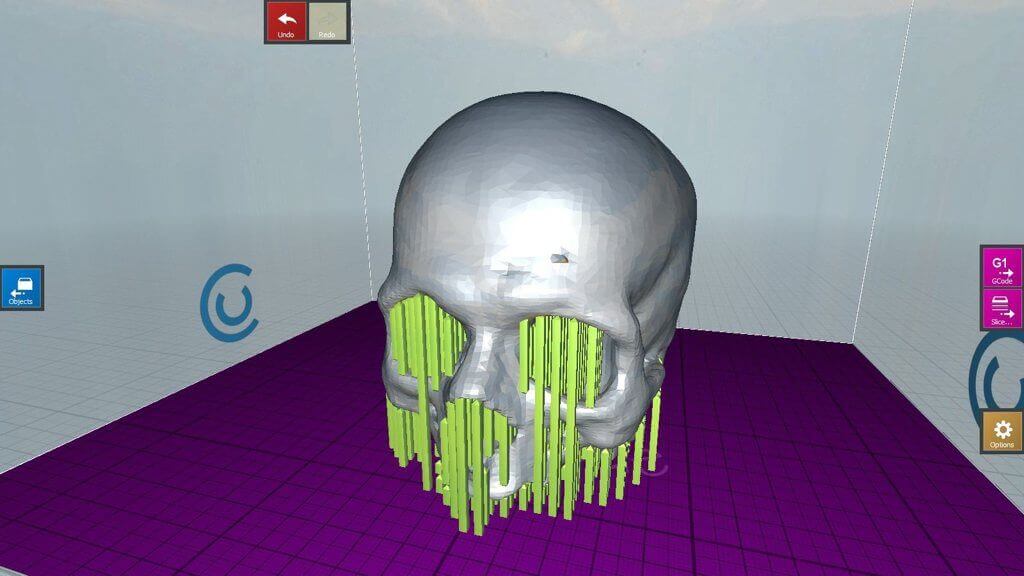 The software allows you to apply additive manufacturing to a part of or entire model.
The software allows you to apply additive manufacturing to a part of or entire model.
Additive manufacturing allows you to manufacture unique components, like lightweight lattice structures. You can, for example, create hollow products, thus saving on weight.
Netfabb includes features that allow you to analyze, repair, and edit STL files before slicing. One notable feature is the simulation toolkit designed to ensure components print correctly and perform as expected. The simulation tools, for instance, can predict how metal additive manufacturing parts will warp, helping reduce build failures.
With the software, you can import models from various CAD systems and quickly analyze files for printability, estimated material usage, print time, and possible cost. If errors are detected, you can use the software's repair tools to fix them.
Note that Netfabb comes in several licensing options: Standard, Premium, Ultimate, and Simulation, each with its unique features. The annual price is $230 for Standard and $4,635 for Premium.
Download: Netfabb Premium for Windows (From $230; free trial available)
Create Great Printables With the Best 3D Slicer Software
Slicers are among the most important tools in 3D printing. Using the right 3D slicer software can significantly improve the quality of your 3D output.
But with so many slicers in use, it can be hard to know which one best fits your needs. This article covers some of the top 3D printing slicer software. Hopefully, it will help you find the right match for your printing needs.
Selection of Popular 3D Printing Slicers
Home » Articles » 3D Slicing Software » Selection of Popular 3D Printing Slicers
#1: Cura
Download - Cura 15.04.6 or Cura-3.2.1-win64
3D printing requires preliminary preparation of STL files for future models. Cura is designed for this purpose - a universal slicer designed for Ultimaker 3D printers and fully compatible with RepRap, Makerbot, Printrbot, Lulzbot and Witbox additive installations. A distinctive feature of this software is the open source code, which allows the user, if necessary, to expand the capabilities of the program by installing additional applications. With its help, you can directly control the 3D printer, provided it is connected to a PC, quickly adjusting the model growth.
Cura is designed for this purpose - a universal slicer designed for Ultimaker 3D printers and fully compatible with RepRap, Makerbot, Printrbot, Lulzbot and Witbox additive installations. A distinctive feature of this software is the open source code, which allows the user, if necessary, to expand the capabilities of the program by installing additional applications. With its help, you can directly control the 3D printer, provided it is connected to a PC, quickly adjusting the model growth.
Cura Standard Slicer is easy and simple to use, even an amateur can figure out its settings, all thanks to an intuitive interface and easy navigation. It is recommended to start work in the Basic mode, where you can quickly change the print settings, choosing the best option for the future 3D model. To improve the quality of the grown product, the Expert mode is provided.
#2: CraftWare
The CraftWare computer program is intended for those who are just learning the basics of modern 3D printing. It belongs to the category of slot-slicers designed to prepare STL files for printing in order to select the optimal settings for growing a high-quality 3D model.
It belongs to the category of slot-slicers designed to prepare STL files for printing in order to select the optimal settings for growing a high-quality 3D model.
The developer of this program is the Hungarian startup CraftUnique, which created a soft slicer to support its own CraftBot device, providing for its compatibility with other printers.
The undeniable advantages of using CraftWare to prepare STL files for 3D printing include the ability to quickly switch from the lightweight Basic mode to the professional Expert mode in order to control the quality of the grown product, visual G-code visualization, which provides easy control of actions, and individual support service, which until recently only paid programs had.
If you decide to use CraftWare to prepare STL files for 3D printing, please note that as of today, you can only download the beta version from the Internet, where errors and failures are possible.
#3: Netfabb Basic
This software is designed to prepare STL-files for printing with the possibility of their analysis, editing, "repair", up to switching to cutting..png) The ability to correct ready-made STL files at the stage of their preparation for 3D printing is its strength. This computer program is used even by advanced users in the field of three-dimensional modeling. It fundamentally differs from software-slicers in its advanced functionality. Netfabb Basic is a truly powerful tool used by amateurs and professionals alike. It belongs to the category of basic programs only because of the low cost.
The ability to correct ready-made STL files at the stage of their preparation for 3D printing is its strength. This computer program is used even by advanced users in the field of three-dimensional modeling. It fundamentally differs from software-slicers in its advanced functionality. Netfabb Basic is a truly powerful tool used by amateurs and professionals alike. It belongs to the category of basic programs only because of the low cost.
No. 4: Repetier
This computer program is intended for advanced users. It stands a level above the standard beginner-friendly slicer software that prepares STL files for printing, but it is open source, allowing you to add functionality by installing additional plugins.
As of today, Repetier supports almost all desktop 3D printers working in the layer-by-layer model growth format, 16 extruders and multi-slicing via plugins. This program can be controlled through an Internet browser not only from a PC, but also from a mobile gadget that has access to the World Wide Web.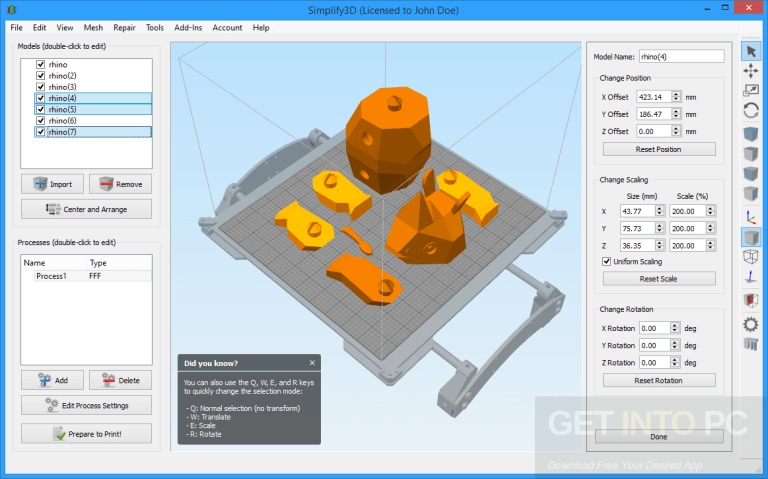
#5: Simplify3D
Simplify3D is intended for professional use. It is distinguished by advanced functionality and a large selection of filling patterns. This software has a flexible algorithm that not only checks STL files prepared for printing for errors, but also quickly eliminates them, creates the necessary structures and provides the user with control over their placement. Also, Simplify3D is used for slicing the model. It is supported by almost all desktop 3D printers. It is called the "Swiss knife" for 3D printing.
#6: Slic3r
Slic3r is a professional computer program designed to prepare STL files for 3D printing. It is open source and has advanced functionality. It provides the user with a huge opportunity to preview the model before sending it to print by showing it from different angles. This software provides models with a unique 3D honeycomb infill that doesn't repeat like a pattern, but extends only to selected layers.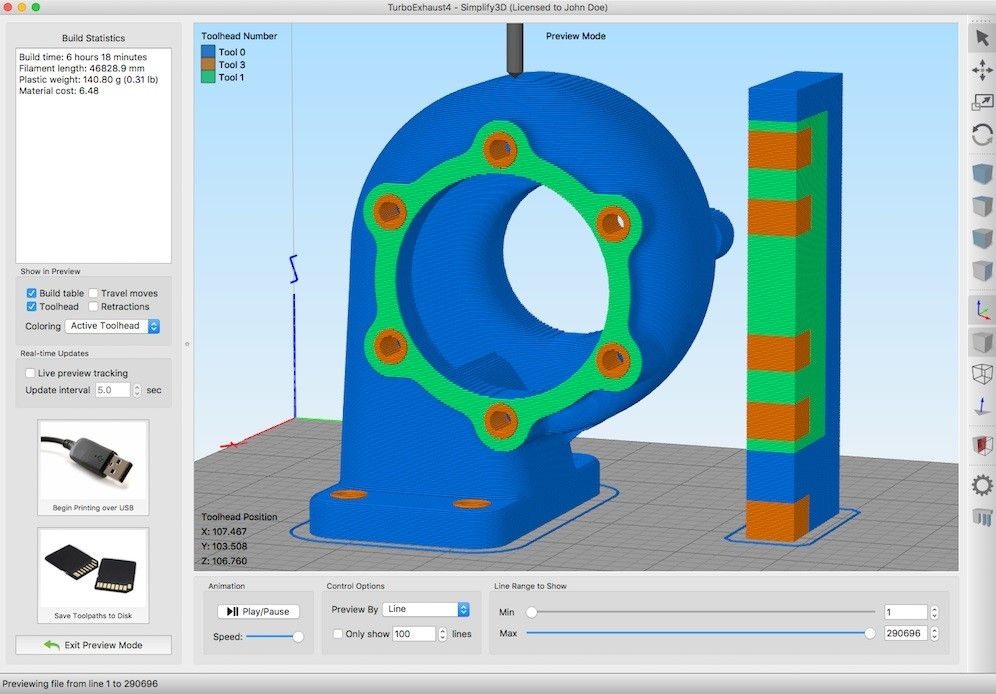 Its use increases the strength of the grown product. Slic3r integrates directly with Octoprint.
Its use increases the strength of the grown product. Slic3r integrates directly with Octoprint.
#7: MeshLab
MeshLab is intended for professional use. Its main purpose is to prepare STL files for 3D printing. It has a built-in STL editor for patching holes, removing part of a 3D model, merging several of its parts into one, etc. MeshLab is used to modify 3D models and "repair" them before printing.
#8: OctoPrint
OctoPrint is a software for professionals that does not require a wired connection to a 3D printer. It can be called "host" software, designed to start, pause or stop 3D printing. OctoPrint can be connected to any Wi-Fi enabled device and used for remote control of 3D printing. This program is compatible with almost all modern 3D printers.
Top 20 Free 3D Printing & 3D Printing Software
Looking for 3D printing software? We've rounded up the top 20 software tools for beginners and professionals alike.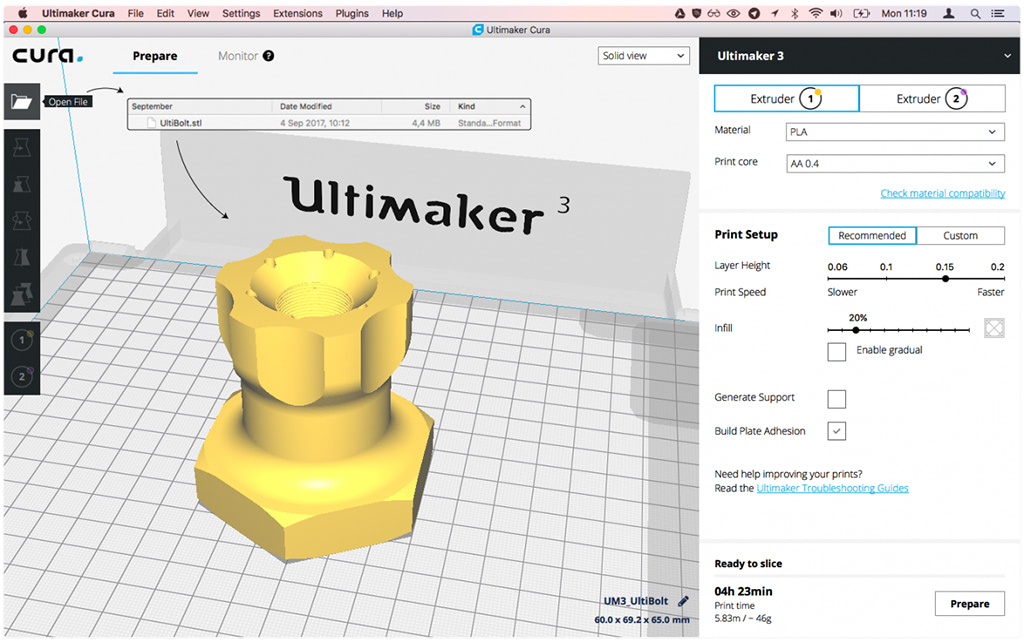 Most slicers are free.
Most slicers are free.
What is a slicer? This is a program for preparing a digital model for printing. Models for 3D printing are usually distributed in STL files. To turn an STL file into G-code (a language that a 3D printer understands), a slicer program is required. It is called a slicer because it cuts (to slice - English) a 3D model into many flat two-dimensional layers, from which a 3D printer will add a physical object.
Which slicer should I choose? In this article, we will tell you which slicer is the best choice for 3D printing for each stage of your work. Which one is better for preparing a 3D model for printing? But what if you need to create a 3D model from scratch? And if you are only taking the first steps in 3D?
Don't be afraid: we've answered all of these questions, including the required skill level for each program and where you can download it. The great thing is that most of these programs are completely free and open source.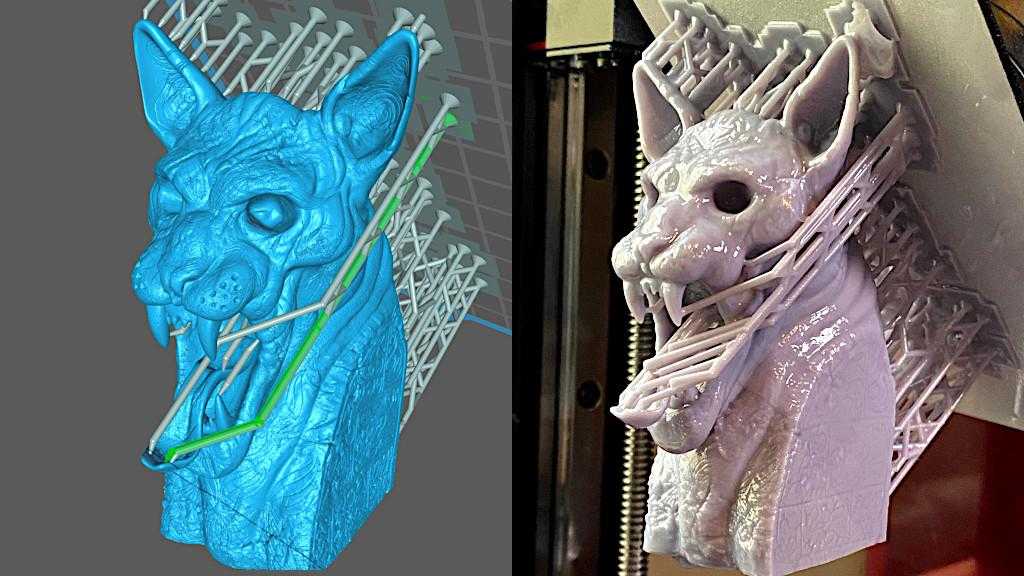
- Cura
- CraftWare
- 123D Catch
- 3D Slash
- TinkerCAD
- 3DTin
- Sculptris
- ViewSTL
- Netfabb Basic
- Repetier
- FreeCAD
- SketchUp
- 3D Tool
- Meshfix
- Simplify3D
- Slic3r
- Blender
- MeshLab
- Meshmixer
- OctoPrint
#1: Cura
For beginners who need a slicer to prepare STL files for 3D printing
Cura is the default slicer software for all Ultimaker 3D printers, but can be used with most others , including RepRap, Makerbot, Printrbot, Lulzbot and Witbox. The program is completely open source, its capabilities can be extended using plugins.
This program is very easy to use and allows you to manage the most important 3D printing settings through a clear interface. Start in Basic mode to quickly get up to speed and change print quality settings. If finer control is required, switch to Expert mode.
If finer control is required, switch to Expert mode.
Cura can also be used to directly control the printer, but then the printer and computer must be connected to each other.
Download: Cura
Price: Free
Systems: PC, Mac, Linux
#2: CraftWare
For beginners to prepare STL files for 3D printing 3D printers by the Hungarian startup CraftUnique to support their CraftBot crowdfunding machine. However, the program works with other printers.
Like Cura, CraftWare allows you to switch from "Easy" to "Expert" mode, depending on how confident you feel. It's a colorful app that features a visual G-code visualization with each function represented by a different color. But the most outstanding feature is the individual support service. As far as we know, only the paid program Simplify3D has this.
Please note, however, that this program is still in beta, so bugs may occur.
Download: CraftWare
Price: Free
Systems: PC, Mac
#3: 123D Catch
-systems, smartphones and tablets, which allows you to convert images of objects into a 3D model.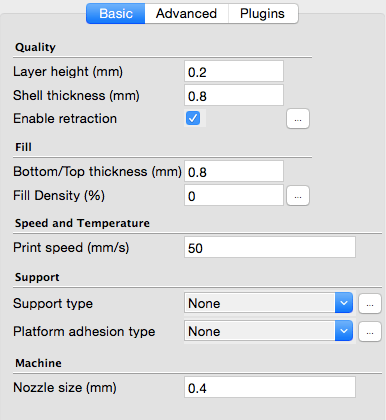 Pictures can be taken with a smartphone/tablet or digital camera.
Pictures can be taken with a smartphone/tablet or digital camera.
You need many photos of the object from different angles - the more the better - after which they will be compiled into a 3D model.
123D Catch is more of a fun app than a professional 3D printing tool, but after some tambourine dancing, you can get good results, especially when paired with an STL editor like MeshLab or Meshmixer.
Price: Free
Systems: PC, Android, iOS, Windows Phone
#4: 3D Slash
and surprisingly simple, and refreshingly new. With 3D Slash, you can design 3D models using your dice skills.
You can start with a large block and, like a virtual sculptor, remove small cups from it with tools such as a hammer or drill, or start from empty space and build a model from cubes and other shapes. You can paint with flowers or use template pictures.
Other features worth mentioning are tools for creating logos and 3D text. The Logo Wizard imports an image and creates a 3D model, while the Text Wizard allows you to enter and format text, and then turn it into 3D.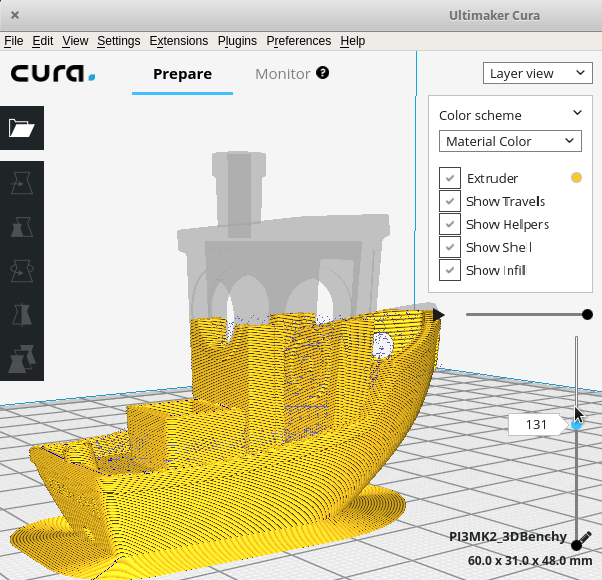
Recommended!
Download: 3dslash.net
Price: Free
Systems: PC, Mac, Linux, Browser
#5: TinkerCAD
- A computer-aided design (CAD) system for 3D printing, which is a good starting point for beginners. Since its capabilities are limited compared to Blender, FreeCAD and SketchUp, many users switch to more powerful tools after some time.
As in 3D Slash, here you can build models from basic shapes. At the same time, unlike 3D Slash, TinkerCAD allows you to create vector shapes in 2D and convert them into three-dimensional models.
Come in: Autodesk TinkerCAD
Price: Free
Systems: Browser
#6: 3DTin
For beginners who want to create 3D models for printing
online is another easy and intuitive tool choice for beginners in 3D modeling. All you need is a Chrome or Firefox browser with WebGL enabled.
Choose from a huge library of 3D shapes and add them to your sketch.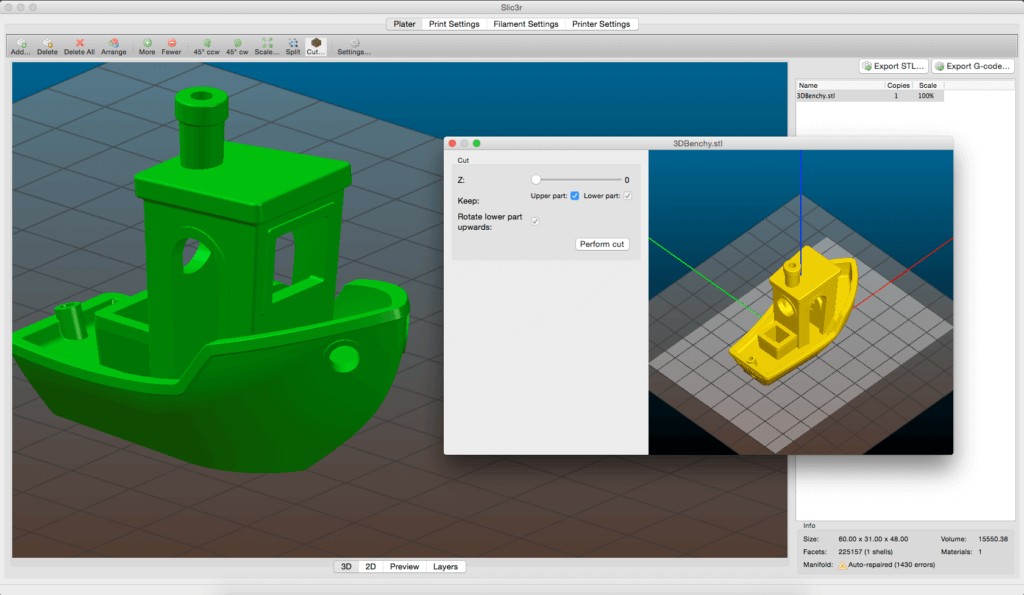 All sketches are stored in the cloud, access to them is free if you honor the Creative Commons license. Everything can be exported to STL or OBJ formats.
All sketches are stored in the cloud, access to them is free if you honor the Creative Commons license. Everything can be exported to STL or OBJ formats.
Enter: 3DTin
Price: Free
Systems: Browser
#7: Sculptris
clay. This is a fantastic 3D modeling program if figurines are your main task. For example, you can make a bust of your favorite video game or comic book character. Sculptris is completely free and bills itself as a stepping stone to the more complex (and expensive) ZBrush tool.
Download: Pixologic Sculptris
Price: Free
Systems: PC, Mac
#8: ViewSTL
For beginners who want to view STL files
ViewSTL is the easiest way to view STL files . Simply open a web page and drag the STL onto the dotted box.
The STL online viewer allows you to display the model in one of three views: flat shading (for a quick view), smooth shading (for a high-quality image), and wireframe.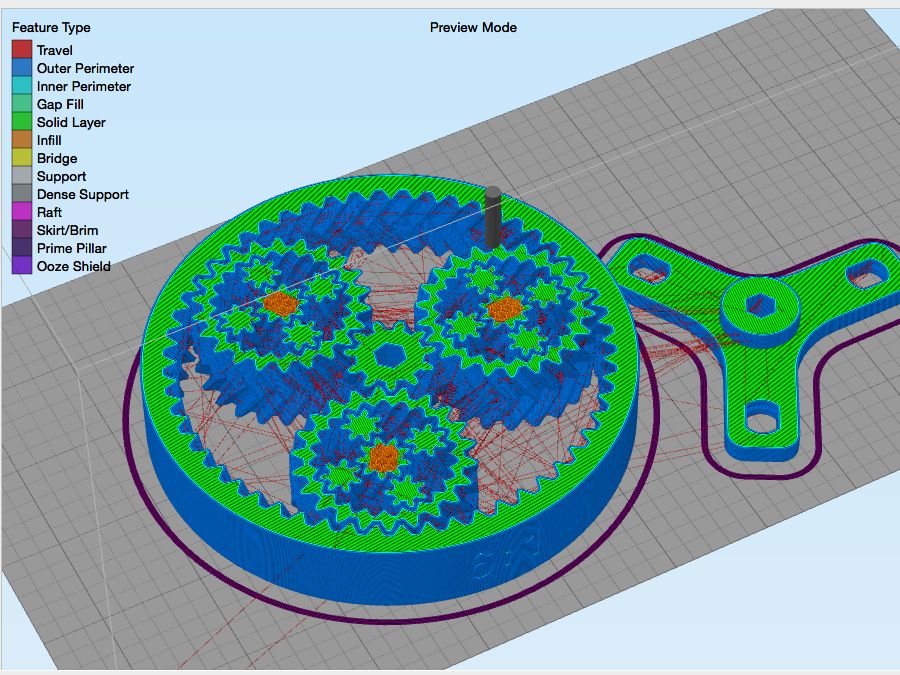
Enter: ViewSTL
Price: Free
Systems: Browser
#9: Netfabb Basic
some nice features that allow you to analyze, "repair" and edit STL files before moving on to the model cutting stage.
A good choice if you need more than just a slicer and want to be able to quickly fix STL files without having to learn programs like MeshLab or Meshmixer.
Don't let the 'Basic' in the name fool you, Netfabb Basic is actually a very powerful 3D printing tool. It's "basic" only in the sense that it doesn't cost €1,500 like Netfabb Professional!
Download: netfabb.de
Price: Free
Systems: PC, Mac, Linux
No. 10: Repetier
For advanced to prepare STL files for 3D printing
9002 the next level of 3D printer slicer software, but if you want to stay open source, you should look into Repetier. It is the great grandfather of 3D printing software and a favorite of the RepRap community. Today the program is moving by leaps and bounds from the level for beginners to advanced users. Packaged in an all-in-one configuration, it supports up to 16 extruders, multi-slicing via plug-ins, and virtually every fusing 3D printer on the market. Get ready to tinker!
Packaged in an all-in-one configuration, it supports up to 16 extruders, multi-slicing via plug-ins, and virtually every fusing 3D printer on the market. Get ready to tinker!
What's more, Repetier Host works remotely via Repetier Server, so that the 3D printer can be controlled via a browser, tablet or smartphone.
Download: Repetier
Price: Free
Systems: PC, Mac, Linux
#11: FreeCAD
The program is a great option for developing your design skills. More technically, this parametric 3D modeling program allows you to easily change the project by rolling back through the history of the model and editing the parameters.
Download: freecadweb.org
Price: Free
Systems: PC, Mac, Linux
#12: SketchUp
For beginners who want to create 3D printable models
SketchUp is the perfect combination of simplicity and - the perfect combination functionality, with a user-friendly interface and a relatively flat learning curve (i. e., as experience grows with the time spent), the ideal program for developing three-dimensional models.
e., as experience grows with the time spent), the ideal program for developing three-dimensional models.
The Make SketchUp version is free and will have everything you need for 3D modeling if you also download and install the free STL exporter. There is also a professional edition for architects, interior designers and engineers.
Download: sketchup.com
Price: Free (SketchUp Make), $695 (SketchUp Pro)
Systems: PC, Mac, Linux
#13: 3D-Tool Free Viewer
view and check STL files
3D-Tool Free Viewer is a sophisticated tool that, among other things, allows you to check the structural integrity and printability of your file. With the Cross-Section function, for example, you can look at the model from the inside and check the wall thickness. Very useful if you want to check your STL file for killer errors before printing.
Download: 3D-Tool
Price: Free
Systems: PC
#14: Meshfix
your model for errors.
Price: Free
Systems: Browser
#15: Simplify3D
For professionals to prepare STL files for 3D printing print. A flexible algorithm checks the model for problems, fixes them, shows a preview of the printing process (ideal for identifying potential problems), and then slices it.
This slicer offers the best infill pattern options in the competition. For models that require supports, Simplify3D will create the appropriate structures on its own and give you full control over their placement. For printers with a dual extruder, when printing with different materials, the Dual Extrusion wizard will help, as a result of which, for example, it will be easier to remove the dissolving filament.
Simplify3D supports 90% of today's commercially available desktop 3D printers and is compatible with Marlin, Sprinter, Repetier, XYZprinting, FlashForge, Sailfish and MakerBot firmware. Simplify3D can also be used to directly control the printer, but then the printer and computer must be connected to each other.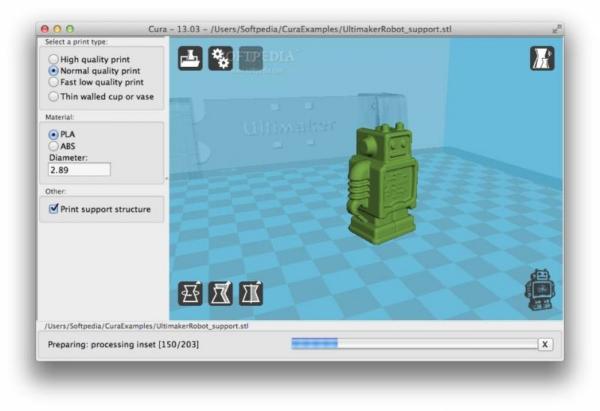
Download: simplify3d.com
Price: $149
Systems: PC, Mac, Linux
#16: Slic3r
source code, which has a reputation as a carrier of super new functionality, which you will not find anywhere else. The current version of the program is able to show the model from multiple angles, so that the user gets a better preview experience.
There's also an incredible 3D honeycomb infill, the first of its kind that can extend over multiple layers rather than repeating itself like a stamp. This significantly increases the strength of the internal filling of the model and the final printout.
Another option is direct integration with Octoprint. Once the files on the user's desktop are sliced, they can be directly uploaded to Octoprint with one click.
Download: Slic3r
Price: Free
Systems: PC, Mac, Linux
#17: Blender
For professionals who want to create 3D printable models
Blender is a popular computer-aided design (CAD) system with a steep learning curve. Not at all the best choice for beginners, but what you need if you are quite experienced and need something more complex for modeling and printing.
Not at all the best choice for beginners, but what you need if you are quite experienced and need something more complex for modeling and printing.
In short, Blender is one of the most powerful tools in existence. Its community is always ready to help, there are a lot of educational materials. It's also open source, so enthusiasts often write extensions to make it even better and more powerful.
Download: blender.org
Price: Free
Systems: PC, Mac, Linux
#18: MeshLab
For professionals to prepare STL files for 3D printing
MeshLab - advanced editor. It allows you to remove parts of a 3D model, merge two models into one, patch holes. If you need a program to modify models for 3D printing or some kind of "repair" work, MeshLab is the right choice.
Price: Free
Systems: PC, Mac, Linux
#19: Meshmixer
For professionals to prepare STL files for 3D printing files. It's especially good for identifying potential problems and fixing them automatically.


